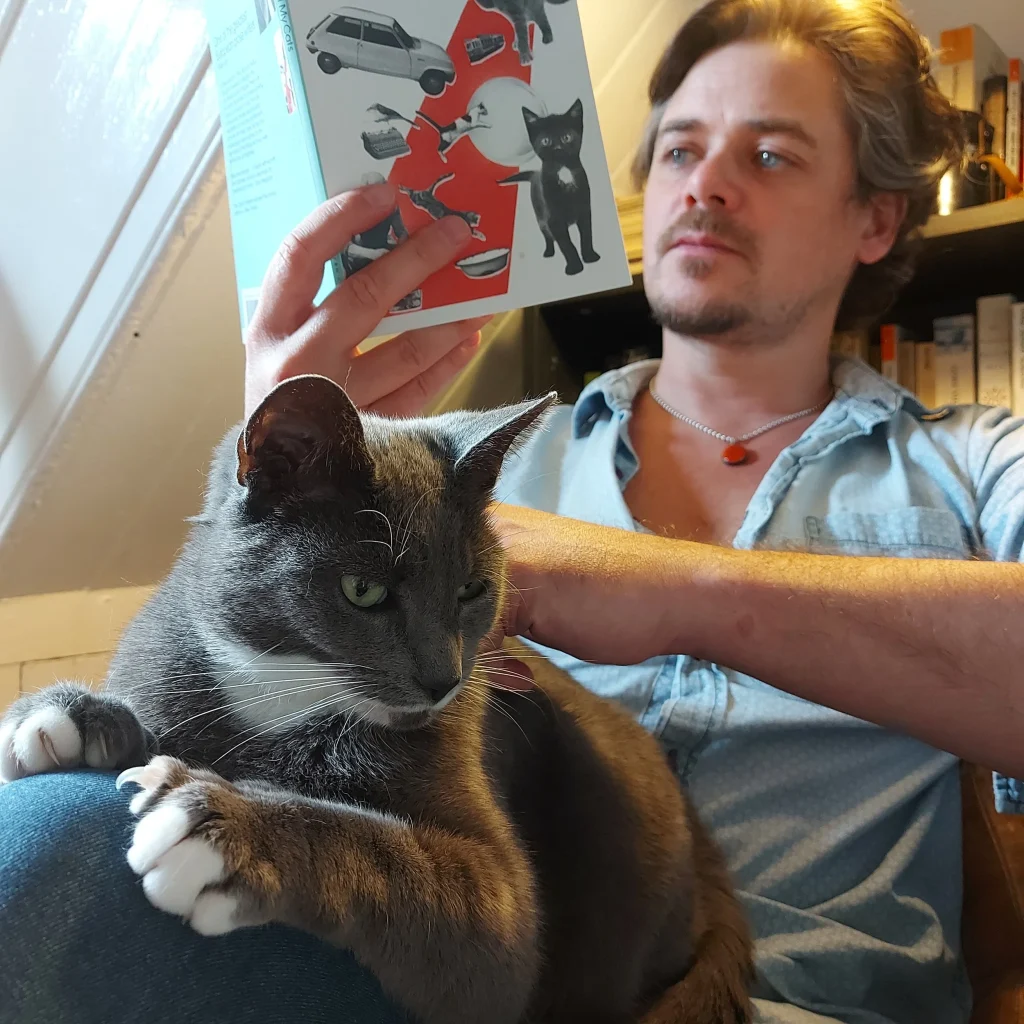The Chapter Clinic
Stop Agents in Their Tracks with Expert Feedback on your Query Letter and First Chapter

Make the first impression count
Your query email is the gateway to publishing. It often decides whether an agent or publisher reads your first chapter at all. And if they do, that opening chapter must capture their attention instantly — or they’ll move on to the next submission.
The Chapter Clinic provides expert, personalised feedback to help your submission stand out. After all, you only get one chance to make a first impression.

How it Works
- Please email us a query written in the style you would use when seeking publication. Keep the message within 400 words and include it in the body of the email (no attachments).
- Attach an editable file (Word, Pages, LibreOffice, etc.—no PDFs please) of your first chapter, up to 2,500 words. If your opening chapter is shorter, feel free to include the following chapters until you reach this word count. Track Changes should be enabled.
- Include the book’s title and a short synopsis (no more than 5 lines) with the chapter.
- Email your submission to info@martinjpdevaney.com.
- We aim to respond to all queries within 48 hours.
- Our reply may:
Gently decline to read the chapter (this can happen if the work falls outside our areas of interest, or if The Clinic is temporarily oversubscribed), or
Invite you to continue the process. In that case, you’ll be asked to pay the appraisal fee so we can begin the editing journey together.
What You Will Get
Query letter feedback – clarity, tone, and how well it engages the agent or publisher to want to read more.
Opening lines feedback – a close look at the first sentences of your novel and whether they compel the reader to continue.
First chapter critique – constructive notes on style, pacing, characterisation, dialogue, and voice.
Title feedback – whether your title intrigues and fits the tone of your book.
Strengths highlighted – what’s working well, so you know what to keep building on.
Common pitfalls – guidance on avoiding issues like overwriting, info-dumping, or introducing tired tropes.
Red flags – elements that might cause an agent or publisher to reject outright.
Practical guidance – clear next steps you can apply to the rest of the novel.
Competition
Submit your query letter before June 1st 2026 and be entered into a draw. Five writers will be selected and have their query letter and first chapter analysed for free. Read the How it Works section for guidance and then Email both to competitions@martinjpdevaney.com including ‘competition entry’ in the subject line.June


We Believe in Up Front Pricing
We have an introductory offer of €100, you’ll receive a detailed appraisal of your query letter and first chapter—giving you clear, constructive feedback on how to make a strong first impression with agents, publishers, and readers.
An Even Better Deal
If you pick up a copy of The Art of Writing a Novel – The XYZ Method (currently free on Kindle Unlimited or from €9.99), the fee is reduced to €50 for Martin JP Devaney’s services. The book offers step-by-step guidance that will continue to support your writing journey long after this first chapter review.
And if you later decide to commission a full manuscript edit or appraisal, the amount you’ve already paid will be deducted from the total fee.
Questions and Answers
Your submission will first be reviewed by Martin J.P. Devaney, author of The Art of Writing a Novel – The XYZ Method. If he is unavailable, or if your work would benefit from the perspective of another specialist, it will be passed to a trusted published author or professional editor. We take care to match each submission with the right reviewer, and you will always be told exactly who is reading your work.
This is an important question. Every submission is read and assessed by a human. AI is never used to judge the quality of your writing, because a strong opening line or piece of dialogue can break the “rules” yet still be brilliant.
That said, like all writers, we use modern tools—spellcheckers, grammar checkers, and occasionally AI—to help with formatting or preparing feedback. But the appraisal itself is always rooted in human editorial judgement.
You can request a specific person but there is no guarantee they are available. You will be notified if your editor is available for your submission
Absolutely. Your chapter and query letter are treated with strict confidentiality and will never be shared beyond the reviewer. All digital copies are deleted once feedback has been delivered.
We aim to have feedback on a submission within 21 days. If there are delays, you will be notified ASAP.
A query letter (no longer than 400 words- pitched as if were intended for an agent or publisher) sent to editor@martinjpdevaney.com.
Your first chapter, sent as an attachment must contain a maximum of 2500 words. If the first chapter is very short then additional chapters can be considered that together reach this word count. The chapter should be in a common editable format such as Word, Pages or LibreOffice (no PDFS).
The fee payable via Paypal, only IF the submission is accepted.
Editing is the process of refining a writer’s work to bring it to a professional standard. There are different types of editing, and not every writer will require all of them. If you are submitting to a traditional publisher, keep in mind that your manuscript will also undergo their in-house editing process. Broadly speaking, the stages of editing are:
1. Query Letter / First Chapter Appraisal
This service evaluates your query letter and opening chapter, offering clear suggestions for improvement. It is especially valuable when submitting to agents or traditional publishers, as a polished opening helps your work stand out. Feedback on the first chapter can also guide you in improving the rest of your manuscript, allowing you to apply the lessons learned to other chapters.
2. Developmental Editing
Developmental editing looks at the manuscript as a whole, focusing on the big picture. The editor examines story structure, character development, pacing, and overall coherence. Common suggestions may include:
Strengthening or reshaping story arcs
Developing or merging characters
Reordering or restructuring chapters for better pacing
Exploring alternative plot directions or endings
Cutting content that feels repetitive or unnecessary
This stage is typically undertaken before line editing, as major changes to the manuscript can render a line-by-line edit premature.
3. Line Editing
Line editing focuses on the sentence and paragraph level. The editor works through the text line by line to:
Refine word choice and phrasing
Improve flow, tone, and readability
Eliminate awkward or unclear sentences
Ensure consistency of style and voice
It is usually carried out after developmental editing, once the overall structure and content have been finalized.
4. Copyediting
Copyediting focuses on technical accuracy and consistency. Sometimes line editing and copyediting are combined, but copyediting specifically addresses:
Grammar, punctuation, and spelling
Consistency in names, timelines, and terminology
Clarity and factual accuracy
Alignment with relevant style guides or house style
5. Proofreading
Proofreading is the final stage before publication. The proofreader checks the typeset or final manuscript to catch:
Typographical errors
Formatting issues
Incorrect page references, headers, or numbering
Any last-minute mistakes that may have slipped through earlier stages
No. The aim of the appraisal is to strengthen your opening chapter so it is more appealing to agents or publishers, not to prepare it for print. In practical terms, a strong first chapter acts as the engine that drives the novel. However, because books are rewritten and refined, the opening chapter often needs to be revisited later for consistency and to reflect plot developments.
For example, you may need to add an early reference to a character’s allergy in Chapter One if it explains an anaphylactic shock in Chapter Six. This kind of structural adjustment is best addressed when the full manuscript is appraised.
If your novel is already complete and your focus is on polish, then the next step is not appraisal but a detailed line edit and proofreading service, which deals with typos, clarity, and consistency.
Yes, the editors here offer a full manuscript appraisal service. Some provide line-by-line edits, while others specialise in developmental editing, helping to elevate your manuscript to a professional standard.
That said, working with an editor is a significant commitment. You are entrusting them with your “baby,” and their goal is to help it reach its full potential in the world. However, not every editor is the right fit for every author. Some may have a deep passion for your genre, while others may not. Others, may simply be unavailable.
For this reason, we recommend starting with a first-chapter appraisal. If you are happy with their approach and feedback, you can then commission further work. The cost of the initial appraisal will be deducted from the final fee.
Pricing and Value
We believe in open and transparent pricing. However, it’s not possible to provide an exact figure without first reviewing your manuscript. The final cost depends on three key factors:
Word count of your manuscript
Scope of edits required
Level of editorial expertise involved
How Pricing Works
A novel that is already well-structured and close to completion—particularly one aimed at impressing publishers or agents—will generally cost less to edit than a manuscript that requires substantial rewriting, restructuring, or detailed line-by-line attention.
Line editing is especially time-intensive, as every sentence must be carefully reviewed for clarity, flow, and impact. This level of work is often essential for authors who want their manuscript to reach a truly publish-ready standard.
For context, editing a typical 80,000-word novel might range from €1,500–€5,000, depending on the manuscript’s condition and the depth of editing required.
Your Goals
The goal of editing may be to:
Create a strong submission package for a publisher or agent, or
Prepare a polished, publish-ready manuscript for self-publication.
Clear Estimates Before You Begin
Before any editing begins, we will provide you with a clear, tailored estimate so you know exactly what to expect. Our pricing reflects the time and expertise involved, and ensures your manuscript receives the high standard of care it deserves
Meet Some Experts
We are introducing a roster of experienced creatives who can help you refine the opening of your novel. Several also provide full manuscript development, guiding your work to a professional, publication-ready standard.
Martin JP Devaney

Author & Workshop Facilitator
Martin JP Devaney has a degree in drama from Trinity College Dublin. He is the author of the book The RTE Writer’s Guide for RTE Commercial Enterprises/Blackwater Press. He has written one-off plays, comedies, dramas and series for RTE Radio One as well as short stories for RTE Radio One and BBC.
He has written for RTE television; has produced a comedy quiz show for Radio One; produced/written several short films; has had plays produced in Ireland, America, Canada, Australia, and Poland. He worked on Sky 191 where he produced over ninety-nine weekly television shows, winning a national media award.
He has lectured in creative writing in third-level colleges and universities, delivered hundreds of writing workshops and helped many writers create professional-level submissions before publication.
Claire Bentley

Editor & Manuscript Evaluator
Claire Bentley is a friendly and diligent freelance fiction editor. Claire specialises in adult and YA speculative fiction (including fantasy, science fiction and horror). However, she’s happy working with other genres. Claire is based in the UK, and primarily works in British English and US English. She does NOT use generative AI in any aspect of her writing or editorial work.
Claire is an Intermediate member of the UK’s Chartered Institute of Editing and Proofreading (CIEP). She completed copyediting and proofreading training with the Blackford Centre for Proofreading in 2021, and completed the CIEP’s fiction editing training in 2024. She is also a Partner Member of the Alliance of Independent Authors.
Claire has been working with independent authors, publishers, and authors seeking traditional publication for the last three years. Claire is an aspiring fiction author herself and has experienced many of the challenges and concerns faced by authors!
She also first-authored a number of peer-reviewed academic journal articles in her previous career as a healthcare researcher, so she knows what it’s like to have your work edited.
Colm Farren

Editor, Proofreader & Appraiser
Colm Farren is a freelance editor based in Dublin. He works with authors and publishers of fiction and non-fiction, providing substantive editing, copy-editing, proofreading, and manuscript appraisals. Since 2013 he has worked primarily with The Lilliput Press as their principal out-of-house reader
Colm has appraised hundreds of manuscripts, both fiction and non-fiction, providing analysis, criticism, feedback and endorsement for work from such authors as Donal Ryan, Rob Doyle, Sam Coll, Elske Rahill, Pat McCabe, J.P. Donleavy, Mike McCormack, Richard Kearney, Aidan Mathews, Sara Baume, Michael D. Higgins, and others.
As an editor, he has helped authors with character-development, plot-development, structuring, pacing, etc. Whatever is needed for the advancement, refinement, polishing, or completion of a piece of work.
